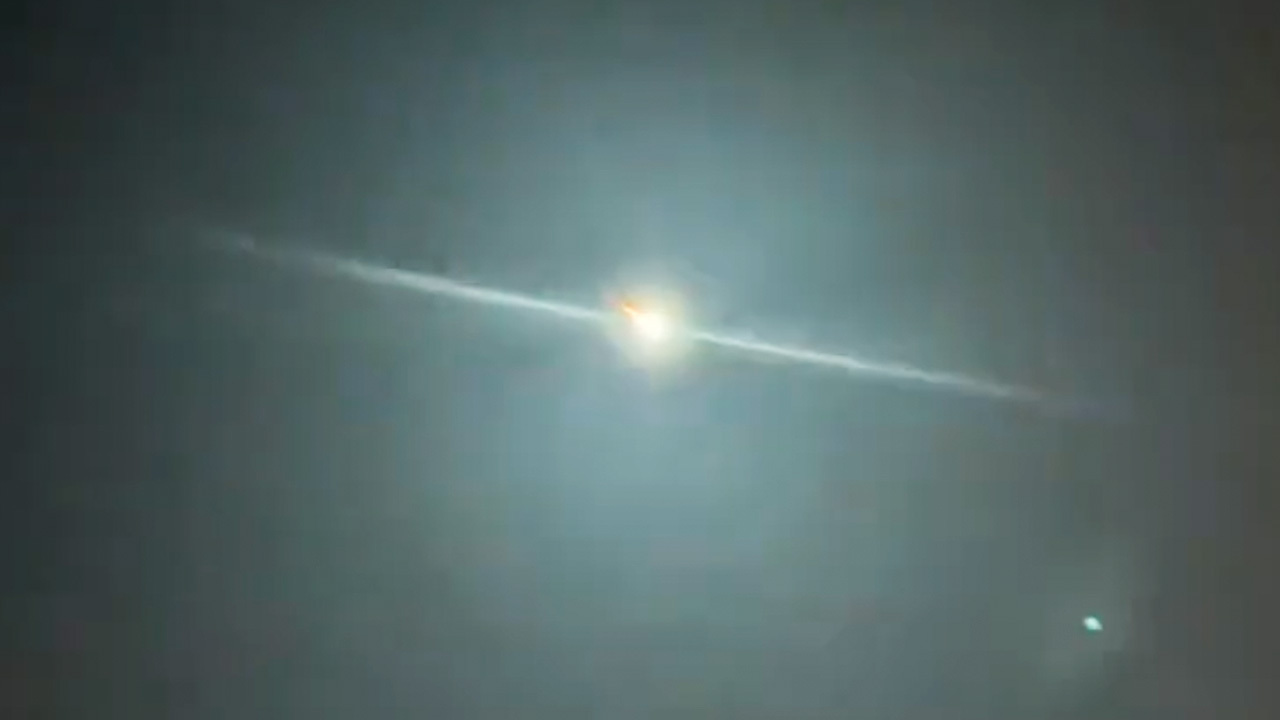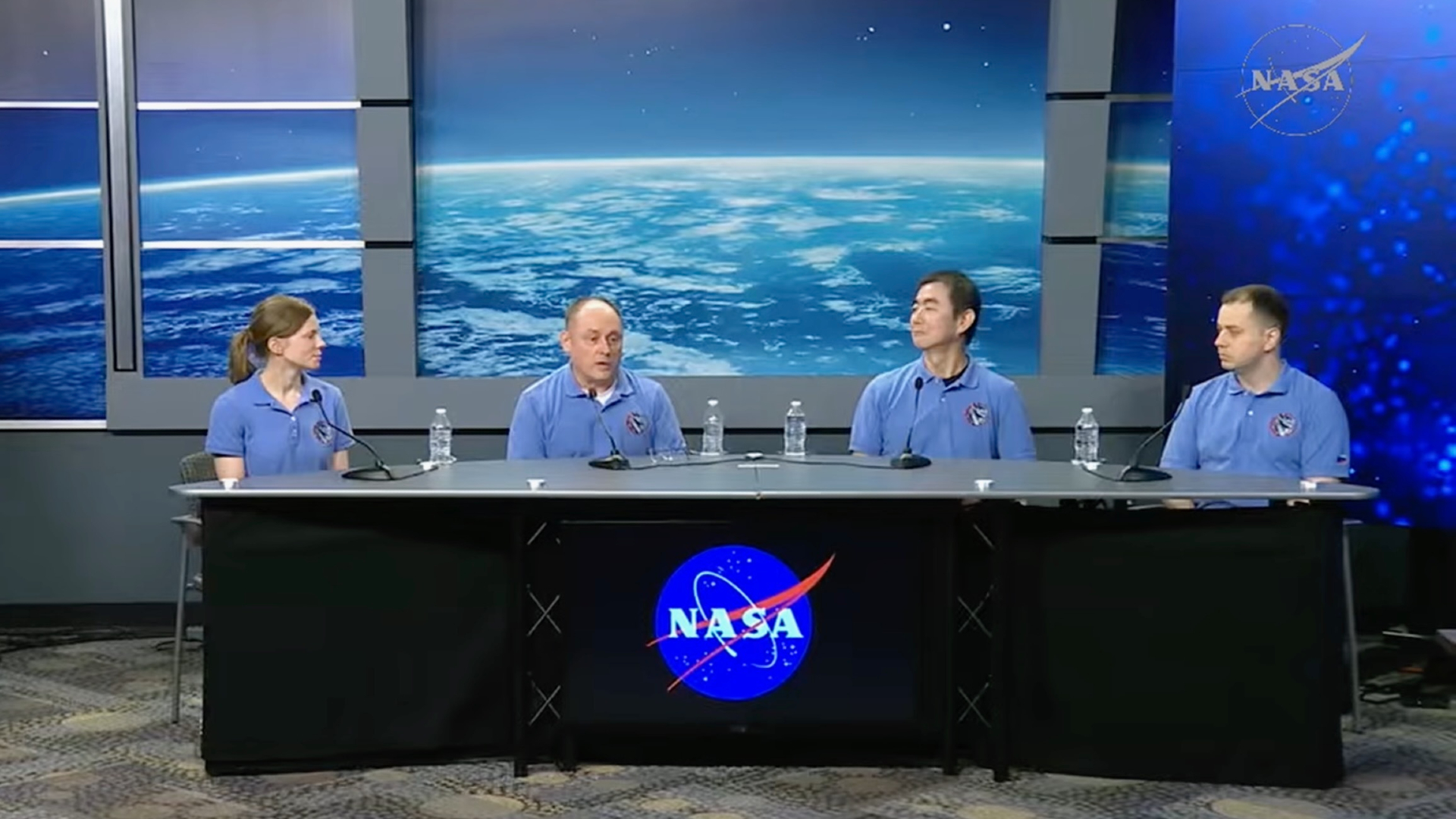Falling asteroid sparks brilliant fireball over Europe just hours after discovery (video)
It's just the seventh time that astronomers spotted a small body in space before it entered our planet's atmosphere.
A dramatic fireball lit up European skies just hours after its discovery in space.
Krisztián Sárneczky spotted the small asteroid at Konkoly Observatory's Piszkéstető Station, located some 60 miles (100 kilometers) northeast from Budapest, with a 2-foot (0.6-meter) telescope. The information was passed along to the European Space Agency, hours before it fell into the atmosphere around 10 p.m. EST Feb. 12 (0300 GMT Feb. 13).
"I discovered this small body during a routine NEO [near Earth object] hunt," Sárneczky told Space.com senior writer Tereza Pultarova in an e-mail. "It was immediately obvious that it was an NEO, but it wasn't particularly fast across the sky, as it was heading right towards us, and it was faint," Sárneczky added.
It's not the first time Sárneczky has given a heads-up for a dramatic fireball event, as the professional asteroid hunter did the same thing in March 2022. "At the time I thought it was a once-in-a-lifetime event," he said. "I was wrong."
Related: What are asteroids?
The discovery image of #2023 CX1 (aka #Sar2667) taken at #Konkoly Observatory's Piszkéstető Station with the 0.60-m Schmidt telescope. Three 4x25 sec stacked images. Nothing special at first. A normal 19.5 mag NEO. pic.twitter.com/1PaYtsv9tzFebruary 13, 2023
☄️@esaoperations reported a 1 m meteoroid before it entered Earth's atmosphere over northern France early this morning: only the 7th time an #asteroidimpact has been predicted - but a sign of the rapid advances in global detection capabilities! #Fireball #Sar2667 https://t.co/MzYoIkRaF2February 13, 2023
You can clearly see in these shots how the viewing geometry of #Sar2667's meteor track changes from place to place: https://t.co/StkNPyf3AnFebruary 13, 2023
Asteroid Sar2667, about a meter in diameter, was expected to fall near the French city of Le Havre at 02:59h UTC. I drove to a photogenic spot close to home in the south of the Netherlands to capture it, just as the sky cleared.#asteroid #meteor @IMOmeteors @apod pic.twitter.com/MNZofhkrd7February 13, 2023
By coincidence, the fireball fell almost exactly 10 years after a six-story space rock unexpectedly exploded over Chelyabinsk, Russia on Feb. 15, 2013, causing minor injuries and damage. Space agencies around the world reaffirmed their commitment to tracking such objects at the time, with NASA opening a Planetary Defense Coordination Office in the wake of the event.
Most fireballs are completely harmless, however, and it is rare for any fragments to make it to the ground. NASA, the European Space Agency (ESA) and numerous other entities nevertheless keep a 24/7 watch on the sky for any asteroids coming near the Earth's orbit. Nothing critically threatening to our planet has been found in decades of searching, but the watch continues, just in case.
Breaking space news, the latest updates on rocket launches, skywatching events and more!
The detection of the 3.2-foot (one-meter) meteoroid, called SAR 2667, is only the seventh time astronomers have been able to do so, according to ESA. "It's a sign of the rapid advances in global detection capabilities," the agency wrote on Twitter.
The event generated 40 reports early in the morning local time (roughly 0300 GMT) in the United Kingdom and on the European continent, according to the American Meteor Society. Reports came from locations like England, France, Belgium and the Netherlands.
Editor's Note: If you snapped a photo or video of the fireball and would like to share it with Space.com's readers, send your photo(s), comments, and your name and location to spacephotos@space.com.
Elizabeth Howell is the co-author of "Why Am I Taller?" (ECW Press, 2022; with Canadian astronaut Dave Williams), a book about space medicine. Follow her on Twitter @howellspace. Follow us on Twitter @Spacedotcom or Facebook.

Elizabeth Howell (she/her), Ph.D., was a staff writer in the spaceflight channel between 2022 and 2024 specializing in Canadian space news. She was contributing writer for Space.com for 10 years from 2012 to 2024. Elizabeth's reporting includes multiple exclusives with the White House, leading world coverage about a lost-and-found space tomato on the International Space Station, witnessing five human spaceflight launches on two continents, flying parabolic, working inside a spacesuit, and participating in a simulated Mars mission. Her latest book, "Why Am I Taller?" (ECW Press, 2022) is co-written with astronaut Dave Williams.

